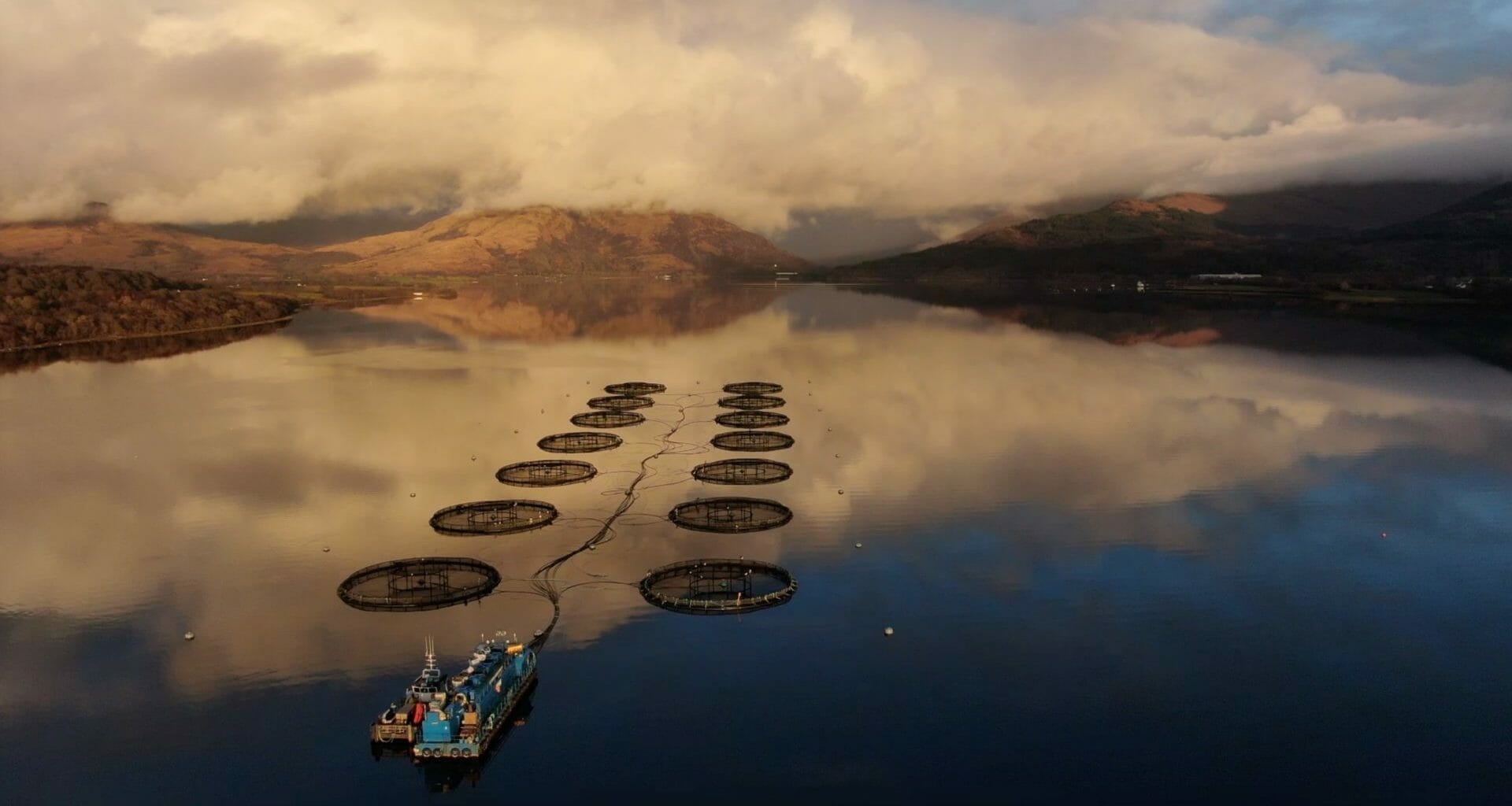
Seabed and pesticide pollution of Scottish lochs by the salmon farming industry increased by over ten per cent in a year, according to the Scottish Environment Protection Agency (Sepa).
The latest official pollution inventory reveals that discharges of carbon, nitrogen, phosphorus and zinc from salmon cages rose by more than 4,000 tonnes between 2019 and 2020. Overall emissions of pesticides used to kill sea lice also increased by 45 kilograms.
Campaigners have branded the rises as “disappointing”, a “major concern” and “completely unacceptable”. They have urged “radical reform” to stop Scotland’s seas being used “as a sewer”.
Salmon farming companies, however, pointed out that the operations of farms were “hugely affected” by the Covid-19 pandemic. It caused lost markets and staff shortages, which meant that fish had to be kept in the water longer than usual.
Sepa’s Scottish Pollutant Release Inventory for 2020 reports on discharges of 12 pollutants from over 150 salmon farms along the west coast and on islands. This covered the first year of Covid restrictions.
Waste food and faeces contaminate the seabed beneath salmon cages, and pesticides used to treat fish spread into the water. Both are known to harm marine wildlife.
Sepa told The Ferret that emissions of carbon, nitrogen, phosphorus and zinc due to fish feed increased by approximately 10 per cent between 2019 and 2020. “In contrast, the annual production in tonnes for the salmon industry was down by 5.8 per cent in 2020 compared with 2019,” said the agency.
“The implications of Covid-19, as well as the European Union exit contributed to both the increase in emissions and downturn in production during 2020. These factors had the potential to have impacts at various stages of production and processing, as well as reducing the access to markets.”
Sepa added: “These circumstances required some operators to hold fish on sites for longer than normal, delaying slaughter and reducing production. During this holding time however, the fish would have required to be fed resulting in an increase in emissions that are directly related to feed.”
Sepa also pointed out that discharges of the pesticide, azamethiphos, from salmon farm boats and cages rose by 17 per cent between 2019 and 2020. Discharges of two other pesticides, deltametrin and emamectin, decreased by 15 per cent and five per cent respectively.
But the quantities of azamethiphos used are much greater, meaning that there was an overall rise in pesticide pollution of 13 per cent from 335 kilograms in 2019 to 380 kilograms in 2020.
Open cage salmon farming requires more radical reform and alternatives.
Stuart Brooks, National Trust for Scotland
The National Trust for Scotland warned that fish farms posed a threat to the marine environment. “It is disappointing and concerning to see a further increase in the discharge of pollutants to our marine ecosystem from open cage salmon farms,” said the trust’s head of conservation, Stuart Brooks.
“This is further evidence that open cage salmon farming requires more radical reform and alternatives. Closed systems should be being developed by the industry if it wishes to continue and expand.”
The Coastal Communities Network, which brings together 23 local groups concerned about the marine environment, warned that the pollution would smother and kill underwater wildlife. The discharges of azamethiphos were “completely unacceptable”, said the network’s John Aitchison.
“If Cabinet Secretary, Mairi Gougeon, wants this industry to be truly environmentally sustainable, rather than just claiming to be as it does at present, she must cut through the greenwashing and make sure that fish farmers stop treating Scotland’s seas as a sewer, by preventing them from dumping pollution altogether.”
The wild fish group, Salmon and Trout Conservation Scotland, called on Sepa to show “zero tolerance” for fish farm pollution breaches. “The industry knows that it can operate and pollute with impunity,” said the group’s director, Andrew Graham-Stewart.
“Increasing marine pollution from emissions and some highly toxic chemicals by salmon farmers are matters of major concern and are yet more evidence that the industry is fundamentally unsustainable.”
Our producers had to cope with lost markets, the virtual closure of food services, and staff shortages.
Spokesperson, Salmon Scotland
Salmon Scotland, which represents the industry, stressed the difficulties it faced in 2020. “Along with all other sectors, salmon farms were hugely affected by the Covid outbreak in 2020,” said a spokesperson.
“Our producers had to cope with lost markets, the virtual closure of food services, and staff shortages. With Sepa’s help, our farmers worked hard to keep some fish in the water for longer than usual, caring for them and prioritising their welfare at all times.
“This had some very limited, short-term and temporary knock-on effects, the results of which are reflected in this report.”
Sepa argued that the long-term success of the salmon farming industry depended on environmental protection being foremost. The agency had introduced a revised regulatory framework in 2019 with which farms must comply.
A Sepa spokesperson said: “Whilst the long-term trend since 2015 has been for reduced reliance on medicine treatments, we continue to work with the sector to encourage and support innovation initiatives in containment and alternatives to medicine use, with progress being made in each of these areas.”
Cover image thanks to Andrew Holder.














